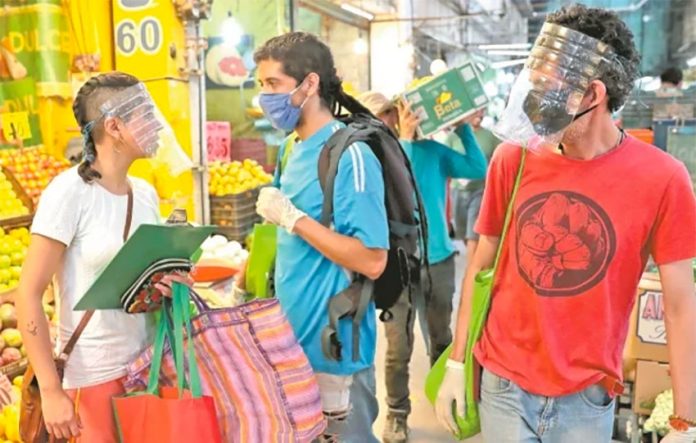Leopoldo Caudillo and his small team walk the corridors of a bustling Mexico City market clad in masks and gloves, scouting out bargains on fresh fruits, herbs and vegetables but not for themselves: they’re buying for customers in quarantine.
On Saturdays, Sundays, Wednesdays and Thursdays the four young people take food orders. A basic package runs 189 pesos (about US $7.90) and contains more than 15 pounds of fresh produce.
The price includes a small delivery fee which keeps the four young team members afloat.
Currently operating in the metropolitan Mexico City area, the group, Do Tribu Huerto Móvil, hopes to expand to the Ecatepec area, and is open to having their model be adopted in other communities around the country to help those most affected by the coronavirus quarantine.
Caudillo was a therapist and sign language interpreter before the pandemic left him with no income, but he has been dedicated to helping those less fortunate since the 2017 earthquake in Mexico City and decided to find a way to help himself while at the same time helping others.
And that’s where the philanthropic element of Do Tribu comes in, a side of their business which is becoming increasingly important.
Do Tribu also offers “solidarity purchases,” financial donations that go toward the purchase and delivery of basic food for senior citizens, single parents and the unemployed.
Caudillo estimates that nearly 30% of the deliveries they make are solidarity purchases, and expects that number to grow.
This past Friday, for example, Caudillo and his team delivered supplies to a convent and a security guard, and an order of melon, tomatoes, chiles, garlic, oranges and bananas to a family in the Santo Domingo area who had reached out for help over social media.
For Caudillo and his team, their delivery service not only helps keep people off the streets and flatten the curve of the coronavirus, but it also provides a way for citizens to give back and support the most vulnerable in their communities.
Source: Siete24 (sp), El Universal (sp)
